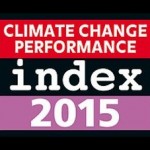 The impact of climate change is fast becoming prominent across the world. Our review of recent research works on climate change and developing events worldwide suggests a few points.
The impact of climate change is fast becoming prominent across the world. Our review of recent research works on climate change and developing events worldwide suggests a few points.
First, it is more than obvious that what we know of climate change, as of today, is just the tip of the iceberg. As more research findings from different parts of the world focusing on different aspects of climate change impacts come to fore, the more baffling and alarming it is to assimilate the depth and complexity to which our natural systems are interlinked – those that we are now putting under strain.
Climate skeptics question the veracity of research and claim that this evidence is too insignificant to be considered as a rallying point for action. But they miss out on the vital issue at hand. Shall we wait for all scientific evidence to accumulate, which may take decades, and then ponder over what action needs to be taken? Perhaps not. The rate at which greenhouse gases are being pumped in the environment is much faster and can disrupt our natural systems much earlier. Prudence demands that action must be taken on the basis of the ‘precautionary principle’.
Second, the scientific community has proved to be much quicker and systematically diligent to assert on the damaging impacts of global warming, while at the same time, redefining or fine-tuning their approach. Unfortunately, this has not yet culminated in concerted political action to curb greenhouse gas emissions. Many political parties are still in the ‘denial mode’ and wish to hide the issue from public scrutiny to suit their strategic interests.
Third, the action on climate change cannot be the concern of a few nations. Unlike trade, it cannot be restricted or selectively contained within territorial boundaries. It is undoubtedly a global issue and, therefore, needs commitments from every nation. Recent country- and region-specific initiatives to curb greenhouse gas emissions have met with stiff resistance from other countries. It is less likely that they would succeed even with the best intentions in place.
Fourth, the knowledge about climate change, especially how it is going to impact communities living on the edge, is very minimal at the ground level. The level of information in public domain has yet to reach the tipping point beyond which it will escalate into a top priority agenda for action. Unless this bottom-up social pressure is built up by the voting class – to ask their leaders about their plans to fight climate change – political parties would not fall in line to take action.
Finally, market regulations alone cannot help in achieving significant results unless buying behaviors or consumer choices change. The onus of choosing a future depends on us. Are we willing to moderate our lifestyle and consume less energy? Will our behavior change at least incrementally, if not radically, to adopt environment-friendly practices? Only then we can ask our politicians to take measures to contain climate change impacts. There are innovative ways to live a life closer to Nature and that’s where we need to be going, rather than placing the entire blame on business or government.
In their defence, they have just been responding to our needs and giving us what we wanted!
 The author is currently Editor at ThinktoSustain.com – a market space for ideas…
The author is currently Editor at ThinktoSustain.com – a market space for ideas…
© 2012 ThinktoSustain.com. All Rights Reserved.















